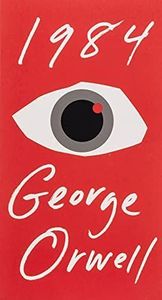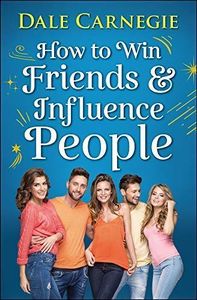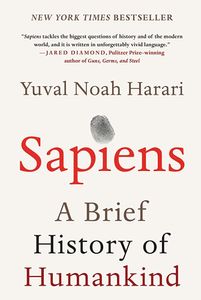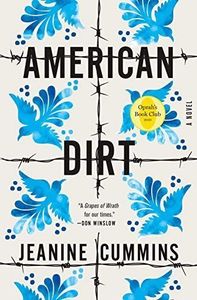
Reviews
It does have some interesting & thought provoking stories but most of them felt too much like an experiment & lack that special immersive quality of those well-written Murakami stories.
Just spoon-feed me Murakami stories and I’ll be fine.
Blind Willow, Sleeping Woman is the first book by Haruki Murakami I've had the pleasure of reading. It won't be the last. This slim book contains twenty-four short stories that range from subtle character studies of ordinary folks to journeys into the surreal. These stories were translated beautifully by Philip Gabriel and Jay Rubin who have translated many of his other books. Gabriel did the English translation of Kafka on the Shore, for example. My favorite story is "Chance Traveler" which recounts a series of coincidences. First the author injects himself into the story explaining his weird moments with jazz and from there launches into a wonderful story about a piano turner who ends up reconnecting with his sister after the meeting with a stranger. "Chance Traveler" captures the magic of serendipity and how it inspires our some of our most important actions in life. Another story that tickled my fancy was the more surreal "Dabchick" that has a wonderful Twilight Zone pay off. It's a completely silly story and written for laughs just as Asimov's "Shah Guido G" was. My least favorite was "A Perfect Day for Kangaroos" because the characters didn't understand kangaroos. Like all marsupials, kangaroos are born extremely premature. A kangaroo joey won't leave the pouch until it is at least 3 to 4 months old, not 1 month old as described in the story. The entire list of stories is: 1. Blind Willow, Sleeping Woman 2. Birthday Girl 3. New York Mining Disaster 4. Airplane: Or, How He Talked to Himself As If Reciting Poetry 5. The Mirror 6. A Folklore for My Generation: A Pre-History of Late-Stage Capitalism 7. Hunting Knife 8. A Perfect Day for Kangaroos 9. Dabchick 10. Man-Eating Cats 11. A "Poor Aunt" Story 12. Nausea 1979 13. The Seventh Man 14. The Year of Spaghetti 15. Tony Takitani 16. The Rise and Fall of Sharpie Cakes 17. The Ice Man 18. Crabs 19. Firefly 20. Chance Traveler 21. Hanalei Bay 22. Where I'm Likely to Find It 23. The Kidney-Shaped Stone That Moves Every Day 24. A Shinagawa Monkey
4.5* The thing about reading Murakami’s book, be it his novel or the collection of his short stories, is that you could never expect what you are getting yourself into. And that’s kinda the point of it. His stories always go beyond our imagination and our interpretation of the true meaning of the stories themselves. Not that we have lower imagination skill than Murakami, nor than most people who read Murakami. It’s just the way how his stories should be, bringing us close to our personal matters and our intimate relationships with ourselves. A narrative that tells multiform stories. *-0.5 only because I prefer reading a novel rather than short stories
As I read more and more pieces by Murakami, I become more used to the bizarre elements that are seamlessly woven into the plot. They used to shock me a bit, but now repentant talking monkeys and corporate executive dabchicks are just normal to read about.
None of these stories are life changing, but they do know how to wiggle into your brain like tiny worms and stay there for a long, long time. You might have a chance encounter that brings up a mild feeling of deja vu before you realize a few days later that it hadn't actually happened to you before - you had read it in a Murakami story some time before.
** spoiler alert ** Non mi piace il finale di molte storie, questo perché molte storie un finale non lo hanno proprio. Che senso ha scrivere una storia se poi non si sa come concludere? Il tipo che va a lavoro e deve dare la parola d'ordine, ad esempio, io avrei proprio voluto saperla questa parola d'ordine ed invece chiude senza dirla. L'investigatore privato? Insomma, il marito è sparito mentre tornava a casa a mangiare i pancakes, lui cerca per giorni e poi lo chiamano e gli dicono che lo hanno trovato e non si sa come, non si sa che cavolo ha combinato, non si capisce niente. Alcune storie sono assurde perfino per Murakami. La zia povera sulla schiena non aveva il minimo senso, e poi per quale motivo improvvisamente dopo tre mesi se ne è andata via? Ed il ragazzo che aveva nausea per 40 giorni dopo le telefonate anomine? "Sai chi sono" sì, ma noi lettori no visto che anche questa volta non lo hai voluto spiegare. Il tipo dei granchi che vomita i vermi mi ha fatto un po' impressione, e sinceramente non ho ancora capito per quale motivo decide di lasciare la ragazza di punto in bianco quando fin ora tutto era andato bene ( solo perché ha vomitato? non ha senso ).
This is probably a perfect introduction to Murakami's works, in my opinion. My favorites are: Birthday Girl, The Mirror, The Year of Spaghetti, The Rise and Fall of Sharpie Cakes, Firefly, Chance Traveler, The Kidney-Shaped Stone That Moves Everyday.















